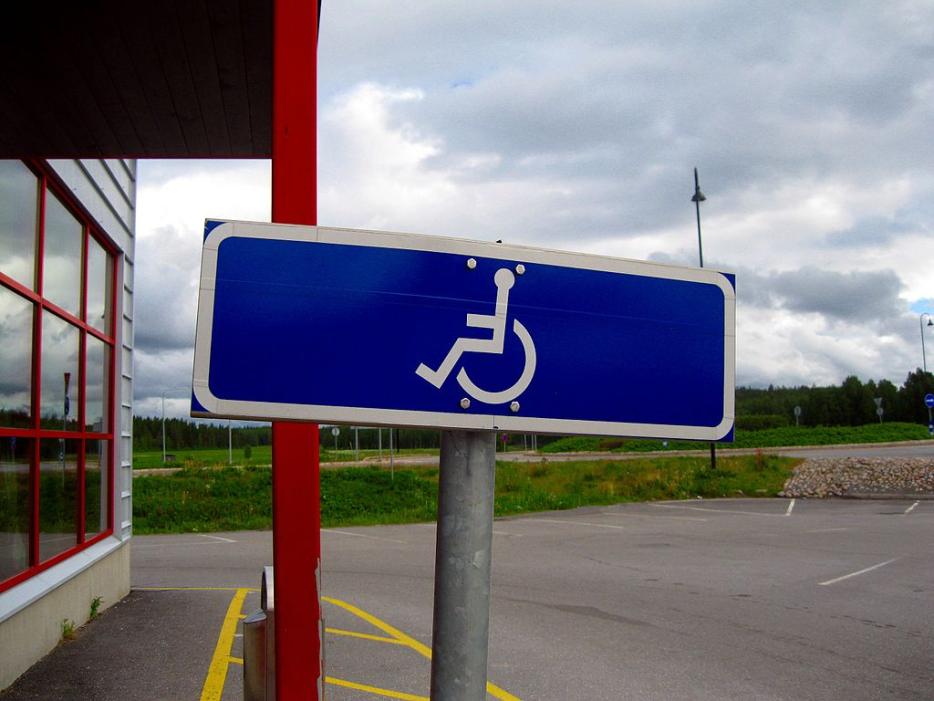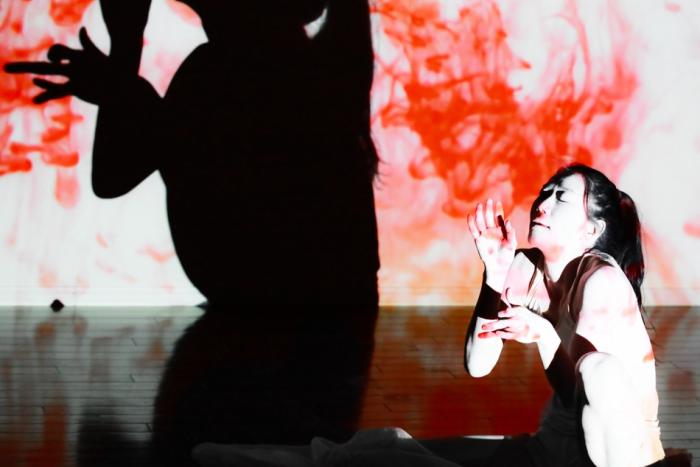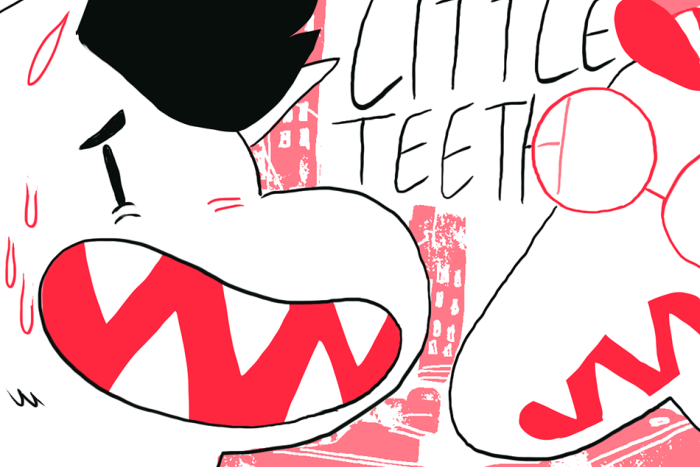When you are a toddler, when everyone still lives in Trinidad, before I am born, you can be found in someone’s arms or on the floor. You drag yourself forward by your elbows while our sister, less than a year younger than you, runs and jumps. No one is able offer a satisfying answer.
A pious relative convinces our parents to take you to her church for the miracle cure. After several sermons and a donation large enough to feed the congregation, the reverend presses his sweaty palm upon Dad’s head, attempting to strike the devil from the father to cleanse the son. Dad locks his leg straight and refuses to fall to the ground.
Mom takes you to a large revivalist gathering where you are too young to understand the wonders being performed as the enfeebled stand, walk, dance, and shout praises to the Lord. An assistant to the preacher looks at you, then at Mom, and says, “He’s still not ready to be healed. Come back next time, and bring more money.” That night, our parents finally see eye-to-eye when it comes to hoping for the divine remedy: never again.
When you are five years old, our grandparents return from a month-long trip across Europe with a gift found in an English hospital for you: a wheelchair. You hate it, cry and climb back down to the ground every chance you get, until one of our uncles makes you laugh and gives you the nickname Wheels, a moniker that’s stuck with you to this day.
You use the term “walk.” You always have.
*
Our parents move us to Canada for you. They take you to the children’s hospital, learn about your disability. Our house—one of several bungalows shaded by towering maple trees—becomes known as the one with the really mean cat and the big green ramp. We live across the street from an accessible school but you’re not allowed to walk the two minutes it takes to get there with our sister and me. Rain, snow, or shine, you have to ride the short bus every morning and every afternoon. The student-support staff and the school board are clear about this particular mandate: safety comes first. After all, the neighbourhood is rife with all kinds of insurmountable obstacles for you—from slightly uneven sidewalks to the gentle, asphalt-paved slope that leads up the school yard.
You like to sleep in, making the bus driver wait. You like to hang out with your friends after the dismissal bell rings, making the bus driver wait.
While completing your undergraduate degree at Ryerson, you take public transit and often miss class when buses arrive at your stop with either broken ramps or drivers who have no idea how to operate them. I half-joke with our sister about getting the local news to do a human-interest segment. Instead, our parents buy you your first car. From time to time, you pick me up from high school. One of my classmates asks, “How can your brother drive if he’s in a wheelchair?”
“Hand controls. Obviously,” I say nonchalantly.
When I receive my learner’s permit, I ask you if I can try them out, thinking it will be as easy as using the foot pedals. I nearly drive your car onto the curb. When I’m practising for my final driving test, you get into the passenger side of Mom’s sedan and point out all the mistakes I make when parallel and reverse parking. I get agitated, but you force me to keep trying until the sky is dark.
You frequent the nearby pub with your university friends so often that the owners eventually install a ramp access. One evening, our sister and her friend accompany you and watch from the bar as you get nicely buzzed and end up in the middle of the dance floor surrounded by women. I hear the story from our sister the next day while you nurse your hangover, lying in bed with the covers over your head, our parents pretending they’re none-the-wiser.
We all want to see War Horse at the theatre downtown. Our sister goes online, looks up wheelchair seating. There is none. She calls the box office and is told that there actually is an accessible seat, but the person will have to get out of their wheelchair to get to it. The man on the phone asks if this can be done. You have enough upper-body strength to maneuver yourself in and out of your wheelchair, no problem, but our sister won’t divulge that. You know how she gets. She spits into the phone, “This is ridiculous,” and hangs up. Dad is slightly disappointed that we won’t be seeing the show, but he tells us that he’s read reviews and it’s certainly overrated.
On a resort trip with your buddies, you chat up a girl one of your very shy friends has a crush on. When confronted about it you are apologetic but—recounting the culmination of events to me later—you tell me you told him quite plainly, “I gave you every opportunity to go for it. You didn’t, so I took my chance.”
You show me the picture of you kissing this girl, grinning.
I’ve asked you to pick me up from the passenger kiss-and-ride at the subway station. You’re frequently late when it comes to things like this. How you drive your RX8 like a speed demon and yet never arrive anywhere on time will always be a mystery to me. While I wait, a car pulls into one of the two wheelchair parking spots in the roundabout and I immediately see red because there is no blue permit on the car’s dashboard or licence plate.
We realize too late that the washroom door is too narrow for your wheelchair to fit through.
I approach when a young man walks up to the car and opens the passenger door. I say, “Um, you’re not supposed to park here. This is an accessible spot.” The young man looks at me half-ashamed, but the driver tells me to mind my own business. As I stutter out noises of offense, he shouts at me to shut up, pulls his passenger all the way into the car, and peels off.
When you arrive, I tell you about this travesty, shaking and wiping my eyes. You nod, driving us back towards the main road.
“Well, what ya gonna do?” you say dismissively. “Let’s grab some burgers.”
Mom and Dad take turns being angry about people’s ignorance when it comes to disability and accessibility issues. They also take turns shushing each other about the correct time, place, and company in which to be indignant. Someone tells them, “Not every parent has it in them to do what you’ve done.” Mom nods with a shrug. Dad sits back in his chair and exhales softly. Neither one thinks they’ve done anything extraordinary.
As you make your way across the stage to receive your BSc degree, the entire auditorium applauds you. Our parents cry large shuddering tears. Our sister and I are quieter, but our faces are streaked all the same.
Your girlfriend laughs at the huge graduation photo that’s eventually mounted on the wall in our parents’ living room. “You look so serious,” she says through giggles. It’s true: you’re like a bull without horns.
Dad reads the online Trinidad news this morning and sees a video that’s causing some buzz, titled “POLICE BRUTALITY AGAINST MAN IN WHEEL CHAIR IN TRINIDAD,” and now he’s stressed because you’re currently visiting Trinidad and, gosh, what are the odds? The man in the video is not you, but Dad is no less incensed. I listen to him opine philosophically and politically about Trinidad’s state of affairs, transitioning from outrage to nostalgia and back, as he reflects with sadness in his voice on how little has changed in the last thirty years.
*
We walk around in the Annex, where our sister lives now, then have sushi. You treat, making a joke about me and her being broke students. Afterwards, we go for coffee. A man sitting alone sees us come in and gets up so quickly that the book he’s reading thuds to the floor.
“You guys can have this table,” he says, pulling one of the chairs away.
“Thanks, man,” you say, tilting your head with a smooth smile. You can be such a dude sometimes. You order our drinks and your usual, a latte with four shots of vanilla, chatting up the barista in the process. You can be such a flirt sometimes. We realize too late that the washroom door is too narrow for your wheelchair to fit through.
Later, our sister and I lean against the trunk of your car, looking out at the sidewalk traffic, while you urinate into a water bottle and then empty it down the sewer drain.
Your girlfriend points out the lake and the boardwalk as we stare out the window of her apartment. You’ve been seeing her for several months now. I like her, think she’s good for you.
“Let’s go for a walk,” you say.
We stroll slowly, having the kind of conversation we will forget once it’s finished. I hold onto the bag of pralines we’ve been sharing then fall behind and observe. Our sister pushes your wheelchair while you and your girlfriend hold hands. All around us children scamper. Babies watch the world from strollers—little ones who will soon run with abandon.






